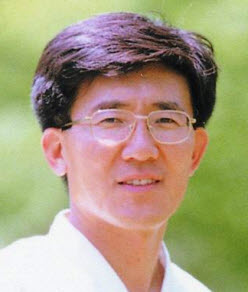
First of all, we need to realize that the amount of hours invested in learning English will definitely determine one’s current level of the language. Researchers of foreign language education have claimed that about 5,000 hours of exposure to a foreign language, which has been called the “critical mass” of language learning, is minimally required to reach a proficient level of the language. When hearing this, people might be wondering whether they suffer from a specific language impairment or have absolutely no inborn abilities in acquiring foreign languages since they think their English seems not to have improved at all, irrespective of a long period of learning of and interest in English. This claim, however, will prove to be ungrounded when they become aware of the amount of hours they have so far actually assigned to English learning. 5,000 hours means 10 years if one studies English for 10 hours a week. Ask yourself if you’ve really invested this amount of time in English and remind yourself of how many hours a child would have devoted to master his/her mother tongue. Thus, the frequent complaint that one doesn’t have any aptitude of a foreign language, particularly English, does not make any sense. And it is my firm belief that just to be exposed to a foreign language doesn’t bring about a desirable outcome. People often talk about fun when learning a foreign language, but pursuing fun doesn’t coincide with effectiveness. A ten minute study session with full attention is much more effective than one hour work with simple exposure devoid of commitment.
Then I’d like to propose more practical tips for language learning that Postechians can keep in mind, which are to imitate, memorize and use. To imitate is the first and basic step when learning a language. In this process, do not think much about the underlying structure of a language. If you realize how a child grows into a fluent user of his/her mother tongue, you may agree with this pont. In other words, children don’t analyze their language. They rather copy what their parents say and write what they’ve read. Next, as a non-native speaker of English living in Korea, you wouldn’t have much exposure to the language, compared with English native speaking kids. Thus, to memorize will compensate for a lack of exposure to the target language. Expressions once memorized are not easily forgotten. The last step is to use or practice the expressions and skills you’ve memorized. At this point, you may complain that the geographical situation of Pohang will make it difficult to find qualified native speakers but don’t forget that POSTECH boasts the best and most well-designed college English program in Korea. Sign up for English classes and practice what you’ve learned and memorized.
Lastly, let me get into more detailed ways to lead you to become a better communicator in English. First, perform a kind of integrative study, in which you practice at least two things at the same time. For example, when you’re studying reading skills, read reading passages aloud, which thereby helps boost reading and speaking skills together. In a similar vein, do not study grammar separately. Grammar is better to be acquired by careful reading and listening. Remember that children learning their native tongue don’t learn grammar by studying, but acquire it through reading and listening. Next, study particular skills that you want to improve first. If you feel like increasing your writing skills most, put your energy into that area, which then leads to improving other skills simultaneously. Last, pay more attention to productive skills of English such as speaking and writing, rather than receptive skills such as reading, grammar and vocabulary. Time and effort for increasing the productive skills will turn out to be more beneficial than those for receptive skills.
Wherever you go, and whatever you do, English will haunt you and your future will be greatly influenced by how well and effectively you can deliver your ideas and opinions in English.
Prof. Dongwan Cho (HSS)


